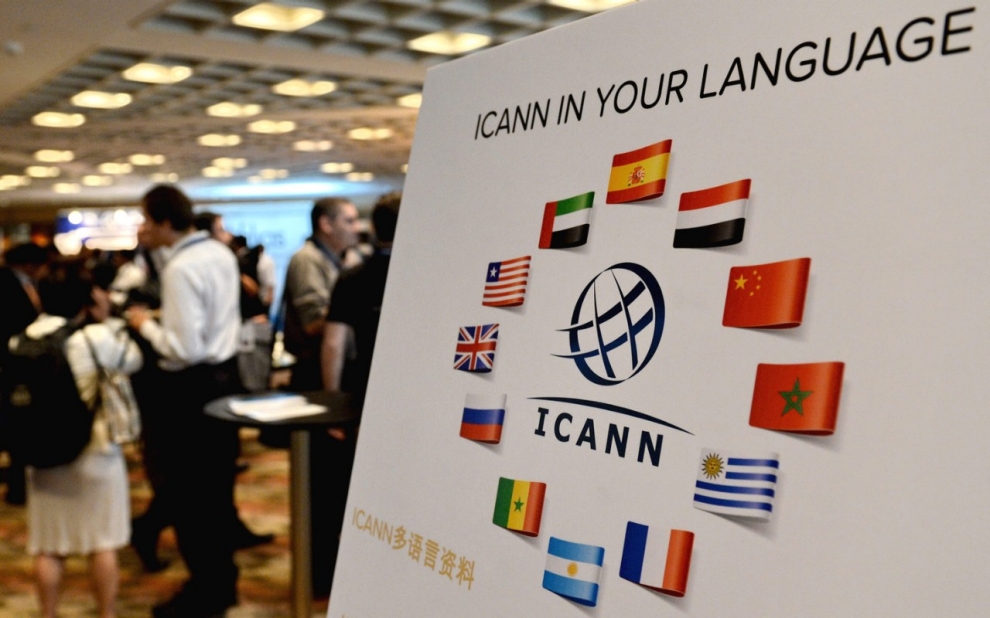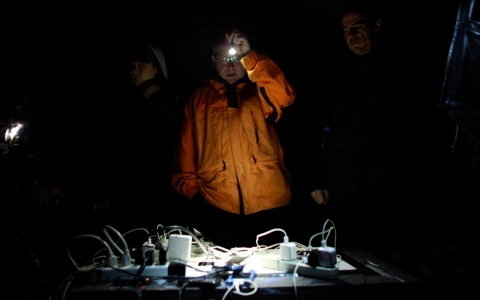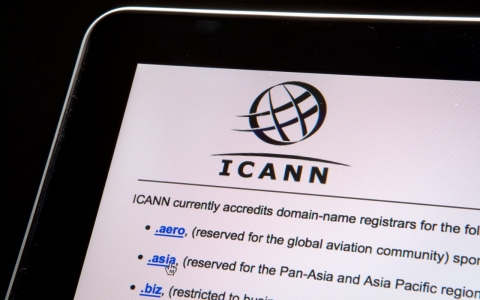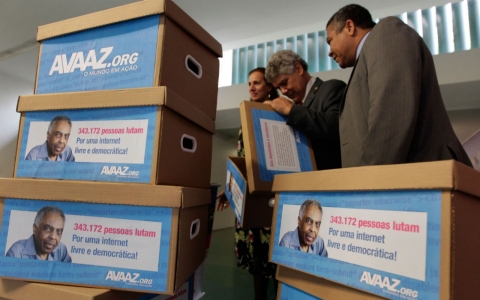
The U.S. Dept. of Commerce will soon cede control over the names and numbers at the heart of the Internet to a group of global stakeholders. With expanded international oversight for nonprofit ICANN — the organization responsible for maintaining the technical stability of the online world — non-American content and languages other than English are set to gain a broader foothold.
There are now almost 300 million domain names in the world, but just 2 percent are internationalized domain names (IDNs) with non-Roman characters such as Arabic script or the Chinese writing system. For example, Japanese people on the Internet currently access the world’s most popular search engine at google.co.jp. But in the future, Google (based in Mountain View, California) could pivot to use of the domain suffix .グーグル, which it already owns and is pronounced “Guguru” in Japanese.
Supporters say IDNs encourage multilingualism in cyberspace, aid emerging economies and correlate with the actual scripts of Web content. However, universal acceptance may be slow to materialize. Many browsers, email servers and mobile devices are not ready to handle the character complexities.
During the 2010 launch of new URL suffixes for Egypt, Saudi Arabia and the UAE, the CEO of ICANN at the time, Rod Beckstrom, described the historic implementation as “a seismic shift that will forever change the online landscape” and “the beginning of a transition that will make the Internet more accessible and user friendly to millions around the globe, regardless of where they live or what language they speak.”
The National Telecommunications and Information Administration, an agency of the Commerce Department, regulates the workings of the public Internet and ensures that typing in “google” and then “.com” always takes users to the same virtual place.
There are 1,070 top-level domains (TLDs), like .biz and .uk. The seven original generic TLDs were .com, .org, .net, .int, .edu, .gov and .mil. Just last year, the number ballooned from just 22 to hundreds more suffixes, such as .google, .black and .lol. The explosion in new names was controversial, but ICANN defended the move, saying it increased variety, competition and minority voices on the Internet.
| Name | Purpose | Administrator | Description |
|---|---|---|---|
| Name.com | Purposecommercial | AdministratorVerisign | DescriptionBecame main top-level domain (TLD), though originally intended for for-profits |
| Name.org | Purposeorganization | AdministratorPublic Interest Registry | DescriptionOpen for use by any entity, though initially limited to non-profit organizations |
| Name.net | Purposenetwork | AdministratorVerisign | DescriptionBroadened beyond just being utilized by umbrella sites functioning as portals |
| Name.int | Purposeintl. organization | AdministratorIANA | DescriptionMostly in use by programs created by treaty between two or more countries |
| Name.edu | Purposeeducation | AdministratorEducause | DescriptionOriginally for primary and secondary schools, but now only for higher learning |
| Name.gov | PurposeU.S. government | AdministratorGeneral Services Admin. | DescriptionFor federal agencies, in addition to state, county and local municipal entities |
| Name.mil | PurposeU.S. military | AdministratorDept. of Defense | DescriptionPentagon and its subsidiary or affiliated organizations use this domain name |
The original list of TLDs — exclusively in Roman letters — included extensions for every country, from .af (Afghanistan) to .zw (Zimbabwe). Some have been retired, like .cs (Czechoslovakia) and .zr (Zaire). For East Germany, .dd was created but never used, and .eh has been reserved but never established for Western Sahara.
But about 45 new country code IDNs were approved by the Internet Assigned Numbers Authority (IANA). The most common are .рф (Russia), .台灣 (Taiwan) and .中国 (China), with a combined total of over 1.5 million addresses ending in those characters.
For its part, Google says its search engines are agnostic about the trendy new TLDs like .guru, geographic suffixes like .london and country codes written in alphabets indecipherable to the average English speaker. Its bots apparently do not give more traditional TLDs any sort of stylistic, linguistic or commercial preference.
The dominance of English on the Internet is gradually giving way to other languages as IDNs become more widespread, according to a August 2014 world report by EURid. Foreign suffixes from European languages like .maison, .uno and .moda are not in English but use Roman letters. Then there are internationalized right-to-left extensions like بازار. in Farsi, meaning “bazaar,” קום. in Hebrew, meaning “com” and شبكة. in Arabic, meaning “network.”
Many of the old country code top-level domains (ccTLDs) are familiar to Web users as simple, largely two-letter suffixes, from .au for Australia to .mm for Myanmar.
But a significant fraction of the ccTLDs are not reserved for websites containing content from or about particular nations. For example, the .ac domain was expanded beyond Ascension Island addresses to many academic institutions. Armenia’s .am is often used for radio stations, and Antarctica’s .aq is for any organizations with a physical presence close to the South Pole.
Colombia has allowed .co to be bought by any entity as a generic domain, while the European Union's .eu is restricted to those who reside in member states. The .su domain name for the Soviet Union is still being used.
Many tech ventures have been buying up .io (Indian Ocean Territory) addresses, and .ly (Libya) is employed for shortened links. The Tuvalu government earns some revenue from use of its .tv domain.
Internet pioneers hope that the speedy adoption of new internationalized ccTLDs will lead to more business and cultural opportunities for users of non-English content and non-Latin scripts. Among those IDNs already approved is one for India’s name in Hindi, which many browsers (such as Chrome) will render instead as “xn--h2brj9c” in the address bar if unable to display the actual letters.
| Country Code | Translation | Language/Script | DNS Name | Main Domain | |
|---|---|---|---|---|---|
| India | .भारत | "Bharat" | Hindi/Devanagari | xn--h2brj9c | .in |
| Kazakhstan | .қаз | "Qaz" | Kazakh/Cyrillic | xn--80ao21a | .kz |
| Palestine | فلسطين. | "Filasteen" | Arabic | xn--ygbi2ammx | .ps |
| Singapore | .新加坡 | "Xinjiapo" | Chinese | xn--yfro4i67o | .sg |
| South Korea | .한국 | "Han-guk" | "Korean/Hangul" | xn--3e0b707e | .kr |
With generic top-level domains (gTLDs), the recent proliferation of several hundred names opened up the online space to domains such as .adult, designated solely for sexually explicit content. In addition, .sex addresses are likely more pornographic in nature than those ending in .love. There are addresses ending in .bar, .beer, .poker and .pub for any interested entities, whereas .christmas and .church denote more sacred content.
On the professional side, .esq is set aside for legal professionals, .fly for travel agencies and .green for environmentally oriented organizations being billed as Earth’s domain. For a wide array of interest categories, .hiphop, .horse and .house can be used for their respective purposes.

Some of the more nuanced new gTLDs include .organic, .vote and .wiki. Corporate brands have been purchasing addresses with .barclays, .bmw, .ibm and . youtube. Many associations appear poised to switch their main Web portals to addresses like .mormon and .nra, which are among those already created at the IANA.
German and Korean companies have also begun taking advantage of the IDNs, with domains like .삼성 (Samsung, in Korean) and .vermögensberater (Deutsche Vermögensberatung Aktiengesellschaft, a German investment firm).
Geographic locales like the South African city are now much freer to use new TLD name .capetown, rather than the seemingly outdated tourismcapetown.co.za.
Los Angeles–related entities are already using .la, the name owned by the government of Laos, which is being refashioned for radio stations, user car dealers and fashion boutiques. New York City also is experiencing an explosion of sites using .nyc. The Russian capital has its own suffix: .москва.
TLDs associated with places aren't limited to urban units or even continents, like .asia for Asia or .lat for Latin America. Many minority ethnic groups hope to follow the example set by people in Catalonia in Spain (.cat), Kurdistan in northern Iraq (.krd) and Tatarstan in Russia (.tat).
ICANN CEO Fadi Chehade said, “I know that minorities will find places on the Net to express themselves through domain name system spaces. … The Internet operates in a transnational space. It is challenging our laws, our jurisdictions. It is challenging the world to create more international frameworks for legal and cultural matters.”
Scotland and Wales (but not England) have their own top-level domains, as do the Basque (.eus) and Breton (.bzh) European linguistic minorities. However, the Cornish community of the U.K. is still campaigning for future use of .ker. In the Western Hemisphere, Native, aboriginal and indigenous people of the Americas (.nai) have also proposed a unique online identity.
This explainer is part of the Internet Project, a series about what the future holds for Internet governance and infrastructure, presented in partnership with the GroundTruth Project.

With the next extreme weather event just a matter of time, networks remain vulnerable to unpredictable acts of God

US decision to leave ICANN raises questions about the future of online innovation

ICANN explores legality of Canadian company accused of buying up .sucks domains and selling them to extort celebrities

Forget the triumphant universalism of the Web; 95 percent of languages have almost no presence online

In an age of online hate mobs and mass surveillance, anonymity is becoming a scarce resource for those who need it most

Groundbreaking legislation would enshrine Net neutrality and attempt to curb NSA spying






Error
Sorry, your comment was not saved due to a technical problem. Please try again later or using a different browser.